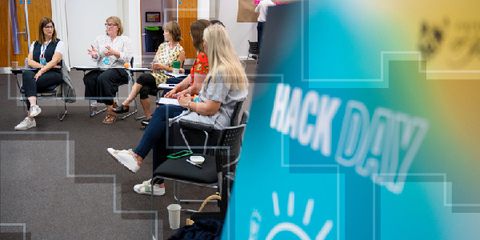Principles for change: inspire and empower
Inspiring and empowering encourages collaboration, both in understanding the problem and designing and delivering the solution.
Key factors
- Explaining what we will do to prepare, support and equip people through the change.
- Clarifying and reinforcing team and individual priorities and responsibilities.
- Promoting cross team working and a sense of belonging.
Resources on this page:
- Model of personal change
- Developing your resilience mindset
- Behavioural Iceberg model
- Build psychological safety
- Workshops (if you're new to change management)
Related links
Model of personal change
- Format: Video
- Time to watch: 6 minutes
- Phase of change: Plan
- Principle of change: Inspire and empower
An introduction to one model for exploring and understanding the emotional response to change.
Learning outcomes
Understand emotions to change using John Fisher's model of change.
Developing your resilience mindset
- Format: Workshop (online)
- Time to complete: 2 hours
- Phase of change: Implement
- Principle of change: Inspire and empower
An online workshop with group and individual activities to explore building your own personal resilience mindset, which can in turn build openness to change.
Learning outcomes
- Distinguish between short and long term stressors.
- Identify ways to counteract cognitive distortions.
- Develop strategies to build on your resilience using the Robertson Cooper model and Covey's Circle of Influence.
Developing your resilience mindset
Behavioural Iceberg model
- Format: Video
- Time to watch: 15 minutes
- Phase of change: Embed
- Principle of change: Inspire and empower
A short video explaining the Behavioural Iceberg model, which is useful for understanding how individuals may react to change. This video comes from an assertiveness perspective and is most suitable for those wishing to explore their own assertiveness profile.
Learning outcomes
- Recognise the unseen factors sitting underneath behaviours.
- Understand the impact that beliefs and values can have on communication, including how an individual delivers and receives messages about change.
Build psychological safety
- Format: Video
- Time to watch: 25 minutes
- Phase of change: Implement
- Principle of change: Inspire and empower
A short video introducing the concept of psychological safety in teams and the benefits this can bring to build and maintain a culture where people feel valued and empowered to share ideas.
Learning outcomes
- Understand the factors that contribute to a psychologically safe team
- Explore practical strategies to foster psychology safety
Training and workshops
If you're in a leadership or management role, you may want to develop a range of skills that support you in your role, many of which are core to supporting change:

More resources
Browse all our resources by theme.